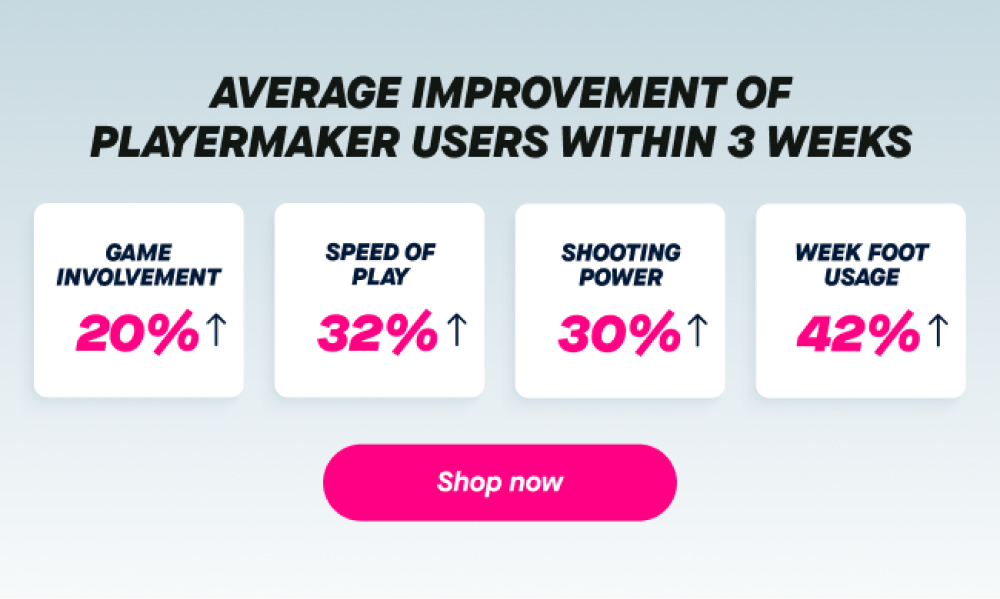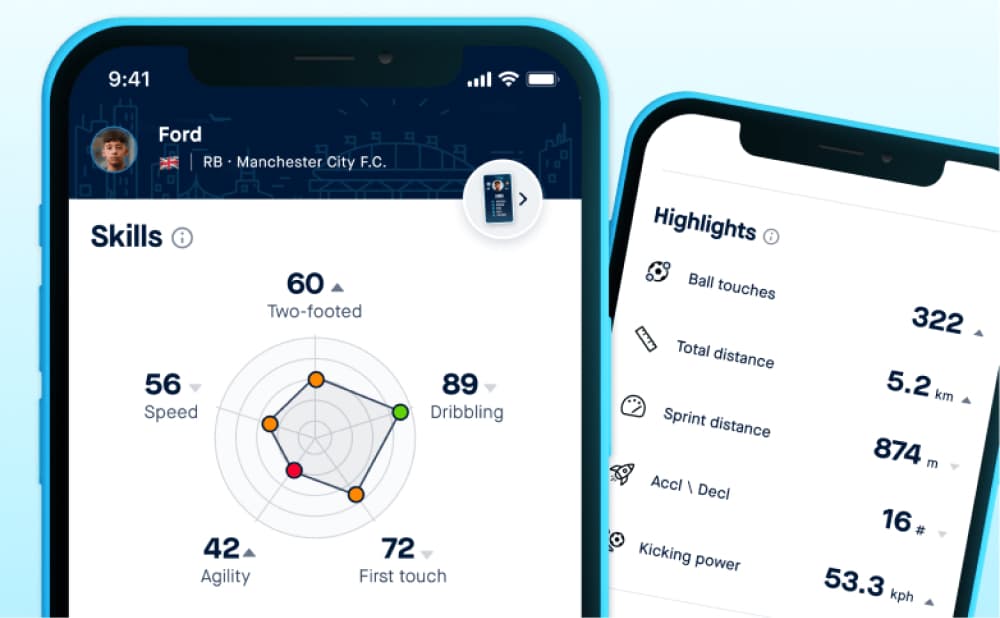Becoming a professional soccer player is a dream for millions. Nevertheless, turning the dream into reality requires dedication, skill, and planning. Only a select minority of talented, hard-working young players achieve that goal.
That said, if you’re passionate about soccer and willing to work hard—you have a chance. Additionally, understanding the steps to go pro can increase your chances.
In the modern era, many young soccer players need technology to improve their odds of going pro. Playmaker’s cutting-edge technology provides the data required to improve every aspect of your game.
In this article, we’ll break down what it takes to make it in the world of professional soccer, from youth development to the highest levels of competition.
What Are The Chances Of Going Pro In Professional Soccer?
The chances of going pro in professional soccer are unfortunately slim. According to statistics, only about 1% of young soccer players who join youth academies will make it to the professional level.
Of course, this is a sobering reminder of the competitiveness in the sport. It also emphasizes the importance of hard work, dedication, and planning.
Starting Early: Youth Development
1. Develop a Deep Love for the Game
You must love soccer to become a professional. Whether you’re watching matches, practicing in your backyard, or playing with friends—it’s the foundation of a successful career. This will focus you on your goals when times become challenging.
2. Commitment to Training
Starting early is crucial for success in soccer. The earlier you begin, the more time you have to hone your skills and develop your game sense. You’ll require:
- Solid training: Consistent and focused training is essential because it helps you build muscle memory and technical abilities.
- Excellent diet: Alongside physical training, nutrition plays a vital role in your development. Your nutrition should include proteins, carbohydrates, and healthy fats.
3. Master the Fundamentals
Fundamentals are the foundation for greatness in any sport. To achieve anything in soccer, you must master the basics. This includes dribbling, passing, and shooting. Working on these skills daily will help you become more confident and versatile.
4. Build a Strong Athletic Base
Soccer is a very physically demanding sport, so building a strong athletic base is essential. To go pro in soccer, master your speed, agility, stamina, and fitness. A fit body can endure the physical challenges of soccer.
5. Develop Mental Toughness
Mental toughness is as essential as physical ability in soccer. The ability to stay focused, handle pressure, and bounce back from setbacks will set you apart from other players. You must:
- Embrace discomfort: Regularly expose yourself to challenging situations to build resilience.
- Set goals: Having clear, actionable goals gives you direction and purpose. Break down large goals into smaller, manageable tasks.
- Practice self-discipline: Develop routines to reinforce discipline—such as regular exercise, a consistent sleep schedule, or sticking to deadlines.
6. Embrace Competition
Competition is an integral part of soccer, and embracing it will help you grow as a player. You must regularly compete against others, whether in practice or matches, to improve your skills.
Progressing to the Next Level: High School and College
As you progress your soccer, high school and college are crucial stages. These stages are where scouts and coaches recognise your talents.
Let’s take a deeper look:
1. Joining a Local Soccer Club
In most places worldwide, you can find a local soccer club to play for. Joining one increases your chances of being scouted. Clubs often have connections with professional teams and can provide you with all-important exposure.
2. Joining Your School Team
In addition to club soccer, playing for your high school team is another way to showcase your talents. School teams often compete in regional and national tournaments. Scouts are always looking for promising players at these events.
3. Getting Scouted
Scouting is a critical part of becoming a professional soccer player. You must always perform consistently and stand out during matches. This is where combining club and school soccer is key.
For more tips on how to get noticed by scouts, check out our guide on how to get scouted for football.
Joining a Professional Academy
Once you’ve established yourself as a promising player, the next step is to join a professional academy.
These academies are affiliated with professional clubs and provide top-tier training, coaching, and resources to help young athletes develop their potential.
Go to Tryouts
Getting into a professional academy often requires attending tryouts. These are highly competitive, and clubs or academies only select the best.
Therefore, to prepare, ensure your skills are polished, your fitness levels are high, and you have mental resilience.
Benefits of Professional Academies
Professional academies offer the best resources. These include experienced coaches, training facilities, and competitive matches. These academies develop players and prepare them for professional soccer.
Making the Transition to Professional Soccer
Making the jump from academy to professional soccer is a huge milestone. It’s not always an easy milestone either. For instance, it requires adapting to new challenges and staying committed to continuous improvement.
1. Adapting to Professional Training Regimens
Professional soccer training is intense and requires a higher level of discipline and commitment. Players must adapt to rigorous training schedules, which include not only physical conditioning but also tactical training and match preparation. Adhering to these regimens is crucial for maintaining peak performance throughout your career.
2. Balancing Soccer and Personal Life
Finding a balance between soccer and your personal life becomes essential. The demands of professional soccer can be overwhelming, so it’s important to manage your time effectively and maintain a healthy work-life balance.
It’s a great idea to stay connected with family and friends. Having hobbies outside of soccer can also keep you grounded and mentally refreshed.
3. Continuing Education and Career Planning
Even as you pursue a career in professional soccer, it’s important to consider your long-term future. Education and career planning should not be neglected.
Many professional players pursue higher education or vocational training to prepare for life after soccer.
Use Playermaker To Track Your Journey To Pro Soccer
As you embark on your journey to becoming a professional soccer player, using Playermakers soccer tracker can significantly enhance your development.
Playermaker helps you track your progress, set goals, and measure your improvement over time.

Whether you’re just starting out or already on the path to a pro career, Playermaker can be an invaluable tool in your soccer journey. With its insights, you can continuously refine your skills, making sure you’re always on track to achieving your dreams.









